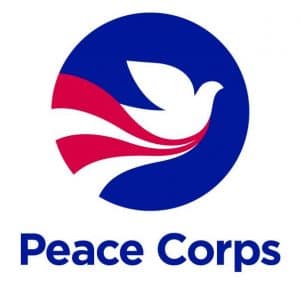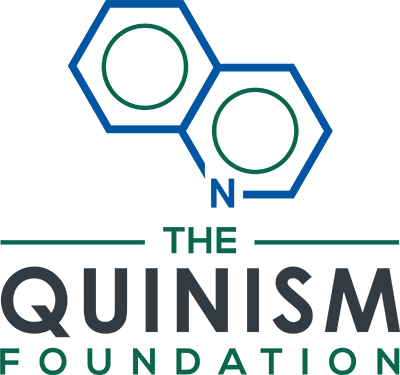Roche Faces Suit in California State Court over Lariam (Mefloquine)

As reported in this story by Jordan Fischer on WUSA9, and in this story by Patricia Kime in Military.com, and as described more fully in this federal court decision, Roche, the original manufacturer of mefloquine (under the brand name Lariam), now faces a major lawsuit in a California court. A former Navy SEAL and his wife are suing Roche for damages arising from his use of the drug during a 2003 deployment to Afghanistan. According to the suit, Andrew Sheets suffered nightmares the first night he took the drug, which have continued along with other symptoms to the present day.
“In 2003, when Roche had a patent monopoly on the Lariam market, nearly 50,000 prescriptions of Lariam were written by military doctors, equating to over 1 million tablets,” the suit reads. “With the War in Afghanistan dragging on for years, the market opportunity was vast and demand was strong.”
As we recently reported, earlier this year, Roche quietly divested itself of some of its international holdings related to Lariam. We can now confirm that this divestment is full and total, and that Roche will no longer market Lariam anywhere in the world.
With this change, branded Lariam will continue to be marketed in a small number of countries by new rights-holder Cheplapharm and its various sublicensees, and generic versions of mefloquine will also remain available in the U.S., Canada, and elsewhere. However, this divestment likely also alleviates Roche of any further requirements to submit regular reviews of adverse events to international drug regulators, leaving a potential gap in safety monitoring for this drug. In the coming months, The Quinism Foundation will be working with international drug regulators, including the FDA, to ensure that ongoing safety monitoring does not suffer as a result of this transition.
You can help us with this effort. If you believe you have experienced an adverse effect from mefloquine (or if continue to suffer from such an effect over six months since your last report), we encourage you to file a report with your national drug regulator. In the U.S., you can submit a FDA MedWatch form directly online. In Canada, you can file a report directly with Health Canada. In Australia, you can file directly with the Therapeutic Goods Administration. To report adverse effects in other countries, or to ask us any questions you have related to this process, or simply to let us know that you have filed your report, please feel free to contact us.
Make Plans to Attend Our Second Annual Educational Meeting Monday, April 29, 2018 Through Tuesday, April 30, 2019
If you have already updated your contact information with us, you should have received a “save the dates” postcard with information on our second Annual Educational Meeting, to be held once again at the Hotel Coolidge in beautiful and historic downtown White River Junction, Vermont. Our meeting will feature a variety of educational sessions, including the annual Sue Rose Memorial Lecture, and various question-and-answer sessions. This is your best opportunity to learn about quinism from experts in the field and meet with others affected by the condition. A full agenda will be released in the coming weeks, but in the meantime, you can register now to reserve your space at the meeting, or visit our meeting page to show your support for our meeting directly. Thank you for your support of this effort!
Help Support Our Education and Research Efforts
The Quinism Foundation relies entirely on the generosity of private donors to fund our educational and research activities. Did you know that you can create a year-end Facebook fundraiser to encourage your friends and famiy to support our efforts? There are many other ways for you to show your support for our efforts this holiday season. The foundation is proud to be listed as a registered charity in the PayPal Giving Fund, on Amazon Smile, and in the Network for Good’s donor-advised fund. You can read more about the foundation’s charitable activities by reviewing our listing on Guidestar. We thank you for your support!
The Quinism Foundation Calls for an Investigation Into the Peace Corps’ Misuse of Mefloquine

Our latest press release describes correspondence the foundation recently sent to Kathy A. Butler, Inspector General of the Peace Corps, in which we call for an investigation into mismanagement by the Peace Corps’ Office of Medical Services (OMS) in relation to its apprent misuse of mefloquine. This follows the airing of several news stories by WUSA9 about Returned Peace Corps Volunteers who developed symptoms of anxiety while taking mefloquine, but were not instructed to discontinue the drug. These volunteers subsequently developed disabling brain and brainstem injuries attributed by medical professionals to mefloquine.
“Interviewed recently by WUSA9 in response to these cases, Peace Corps OMS epidemiologist Dr. Kyle Petersen noted his opinion that, ‘judging by what was available on the market at that time, Peace Corps did the best job they could’,” Dr. Nevin wrote in the foundation’s letter.
“In our opinion, PCMOs under the management of the Peace Corps OMS very clearly failed to do ‘the best job they could’, in that they neglected to adequately consider and respect guidance in the FDA-approved product labelling for the use of the drug.”
The foundation has called for the Inspector General to consider a recommendation to the Peace Corps that the organization formally deprioritize use of mefloquine. This follows a similar request, written several years earlier by Dr. Nevin and board member Dr. Ritchie, for the Peace Corps to update its mefloquine policy in light of recently strengthened warnings that the drug needed to be discontinued at the onset of any psychiatric symptom.



